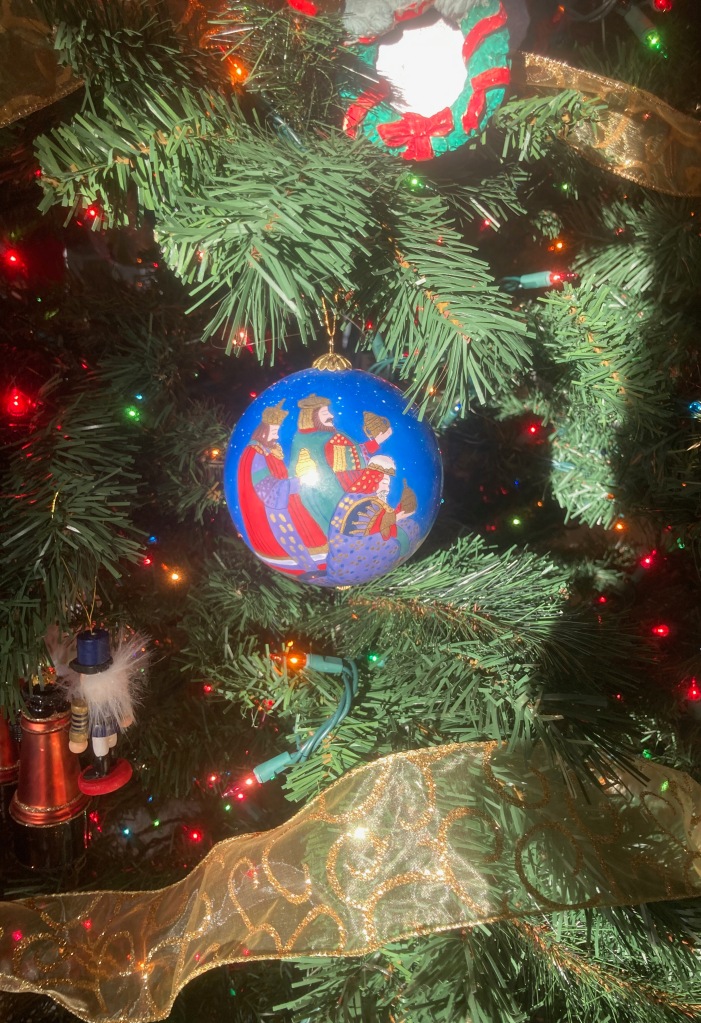
Epiphany is the celebration of the manifestation of God being revealed in Jesus Christ to ALL nations – to the gentiles – to ALL people!
The way the storyteller “John” puts this manifestation is: “What has come into being, in him was life, and the life was the light of ALL people.”
The lectionary reading for Epiphany from Isaiah puts it this way:
“but the LORD will arise upon you,
and his glory will appear over you.
Nations shall come to your light,
and kings to the brightness of your dawn.
Any time you hear the word “nations” in scripture you can just insert the word “gentile,” or you can imagine that the writer is talking about EVERYBODY that is on the OUTSIDE of the traditional hearers of the story.
But Matthew has a very interesting way of informing his hearer of this Good News of inclusivity.
He illustrates this profound truth in an indirect way by informing his hearers that God has come for ALL people by inserting certain characters in the story that get translated “wise men.”
Mark Allan Powell reminds us the identification of the magi as “wise men” may be a bit of a problem. You see, a major theme in Matthew is that God does not reveal things to “the wise and intelligent.”
Jesus says in Matthew 11:25: “I thank you Father, Lord of heaven and earth, because you have hidden these things from the wise and the intelligent and have revealed them to infants.”
Matthew places characters in his story that are likely to raise more eyebrows than to affirm that this is the Messiah.
Here is one of my favorite commentaries on understanding the Magi.
Pastor Brian Stoffregen writes, describing the “magi” (as the Greek word titles them):
The Magi would represent, to the early Jewish reader, the epitome of Gentile idolatry and religious hocus-pocus — dabblers in chicken gizzards, forever trotting off here or there in search of some key to the future.
Stoffregen continues:
The word “Magi” also appears in Acts 13. Barnabas and Saul come to Paphos. There they meet Elymas, a Jewish Magi. This is how Paul describes him in verse 10:
“You are a child of the devil and an enemy of everything that is right! You are full of all kinds of deceit and trickery. Will you never stop perverting the right ways of the Lord?”
Just think it is those very people that Matthew puts in his story to convince us of God coming not just to God’s chosen people but to ALL people.
What seems unlikely, illogical, unfair and out of the realm of possibility to the first hearers of the gospel–AND to US–well, that is, (more often than not), the way God works.
Perhaps if all of us considered the “outsiders” of our predominant culture, and thought about the most
- unlikely person
- or ethnic group
- or sexual orientation
- or country of origin
- or religious tradition…
…. to be led by a star to God Incarnate, and we could put a robe on them. and a crown, and a chest full of treasure in their arms, and with our wide-opened-minds see them bow in the presence of the boy King, and put them in our manger scene next year
THEN we would get it!
Don’t forget the last Sunday before Christmas when we heard Mary’s reply to the angel Gabriel at his news to her that she would be the God bearer:
My soul magnifies the Lord, and my spirit rejoices in God my savior
He has looked with favor on the LOWLINESS of his servant…
What wonderful bookends!
A lowly maiden hearing the promise on the Sunday BEFORE Christmas and foreign stargazers –outsiders at BEST– laying their OWN EYES on the Promise born– at the END of the Christmas story!
My author-friend, Robert Benson wrote in his book Home By Another Way:
“A wise man—[he was talking about his father]—once said that he was certain only that these three things were true: [first] that God is Love, [second] that somehow that Love got loose on earth in the person of Jesus Christ, and [third] that if one believed those two things, then everything could never be the same again.”
The wise men, or magi, or three kings (however our translations, tradition and culture understands or celebrates them) are supposed to show us this:
Those who had been left out were….from now on….being included.
How can anything ever be the same again when we understand what God has done not just for US but for ALL PEOPLE through Jesus Christ?
How can we share this news or his coming in a manner that brings Joy to the World, and not fear?
The Good News of Jesus Christ is NOT just for a certain group who was and is doing everything right (in their own eyes) and excluding everyone else who thinks, looks, or believes different from them.
God is love.
Everything can never be the same.
The Magi followed the star to deliver their gifts. They left the child to return home by another way having received one themselves.
How often do we gather for worship bringing our best for God, but leave having received God’s best
